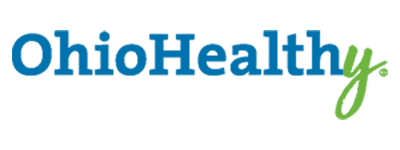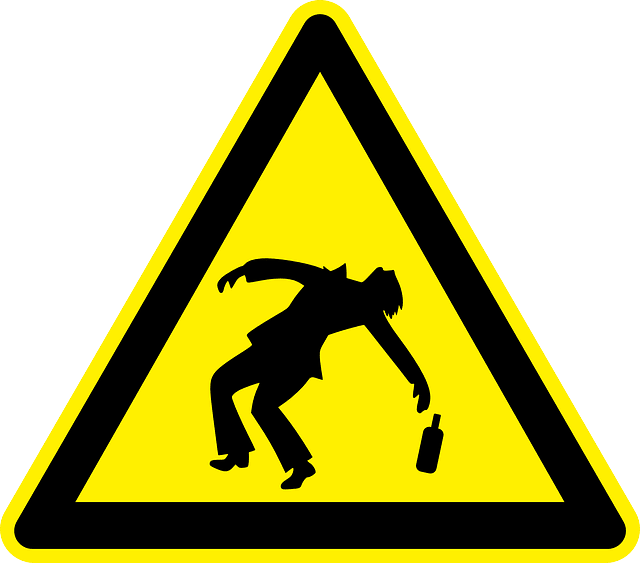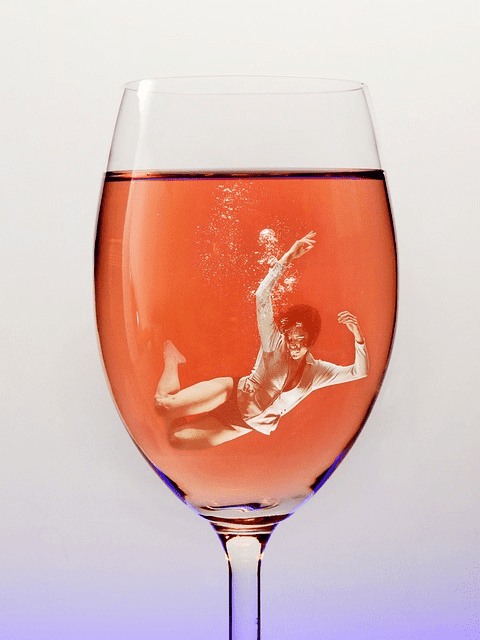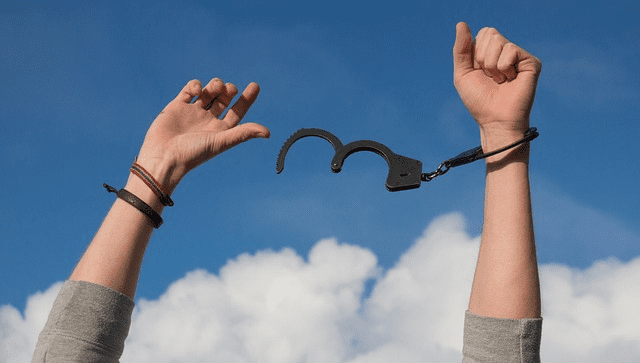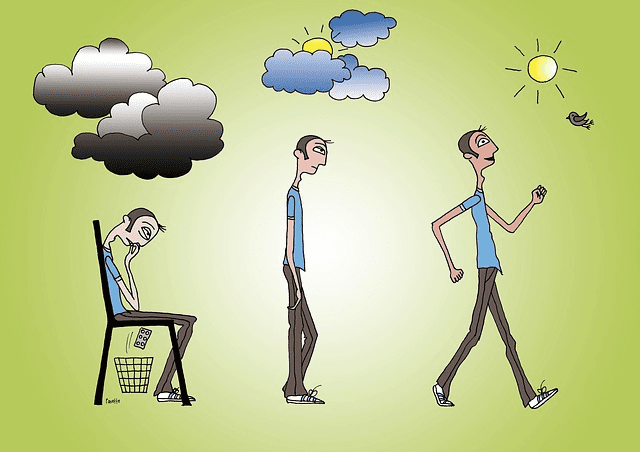Key Takeaway:
- Alcohol can interact with other drugs in potentially harmful ways: Combining alcohol with prescription or over-the-counter drugs can increase the risk of adverse effects, such as drowsiness, dizziness, and impaired coordination. It can also lead to more serious consequences, such as liver damage and overdose.
- Some drugs should not be taken with alcohol: Certain medications, such as antibiotics, pain relievers, and antidepressants, should not be taken with alcohol because they can cause serious side effects or reduce the effectiveness of the medication.
- It is important to talk to a healthcare provider about alcohol use and medication interactions: Before starting a new medication or drinking alcohol, it is important to consult with a healthcare provider to understand the risks and potential interactions. Healthcare providers can provide guidance on how to use medications safely and how to minimize the risk of harmful interactions with alcohol.
The risks of drug and alcohol use can have devastating consequences on a family, including feelings of confusion, hurt, and anger. In this blog post, we will explore these dangers in depth: from identifying signs of substance abuse to prevention strategies. By the end, we hope you feel better equipped to protect yourself, your loved ones – particularly those vulnerable family members affected by such behaviour, as well as your wider community against the harms associated with drugs and alcohol misuse.
By examining factors that contribute to addiction along with available treatments options out there for those suffering from its ill effects. Our intention is to highlight just how serious an issue it is in order to help combat its prevalence together when faced with situations involving drug or alcoholic consumption alike within any relationship, be they friends or foes!
Finally, let us remind ourselves why understanding the perils presented here is so vitally important -so much depends upon being aware enough today before tomorrow comes calling-especially now more than ever due to COVID 19 restrictions. Amplifying existing issues causing isolation & resulting anxiety making one even more susceptible to potential drinking/drugging habits forming faster if not quickly addressed properly.

Consuming alcohol with other drugscan lead to bad side effects and reduce the effectiveness of medications and even be fatal in some cases. Mixing alcohol with painkillers, antidepressants, sleeping pills or allergy meds can be dangerous. Plus, alcohol can lessen the effects of diabetes, blood pressure, or cholesterol meds.
The Dangers of Mixing Drugs and Alcohol
The combination of drug and alcohol use, also known as using both substances simultaneously, has many potential health risks. It can lead to serious adverse reactions from the drugs taken or cause one to develop a substance abuse disorder. For instance, taking HIV medication with illicit drugs could be fatal because there is an increased chance of experiencing dangerous side effects due to interactions between them. Mixing sleeping pills and drinking too much alcohol may have dire consequences such as dizziness, confusion, and respiratory depression leading to even death in extreme cases.
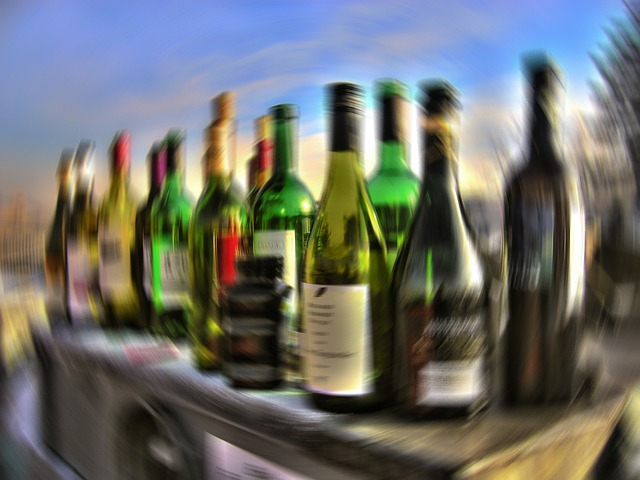
Drugs and/or excessive consumption of alcoholic beverages can weaken your body’s ability to fight off any illnesses related to HIV while reducing tolerance for medications meant for treating said virus along with increasing the probability that you will experience more intense symptoms on these medicines which only weakens overall wellbeing Still. Recognizing the danger associated with this mix is essential if we are looking to prevent potentially tragic outcomes from occurring.
Alcohol can have severe and unpredictable effects on the body. When mixed with other drugs, the interaction can be harmful or even fatal. It is important to know how alcohol affects other drugs.
Alcohol acts on the central nervous system and makes other drugs more powerful. It can stop medications from working and cause drugs to stay in the body too long.
Examples of drugs that may interact with alcohol are painkillers, anti-anxiety meds, antidepressants, sleeping pills, and antihistamines. Ask a doctor or pharmacist before consuming alcohol while taking any medication. They can tell you safe limits and possible interactions.
Mixing alcohol and drugs can be dangerous. Side effects could include coma or death. Be aware of the risks.
Common Drug and Alcohol Combinations
The consumption of drugs, like painkillers, while drinking alcohol can cause life-threatening outcomes such as heart attack and overdose. This mixture not only leads to respiratory system depression but also weakens one’s gag reflex and narrows their pupils. In some cases, seizures or extreme feelings of happiness may occur. It is important for individuals to recognize the dangers associated with this drug-alcohol combination in order to prevent any tragic events from taking place. Similarly, cocaine mixed with drinking could produce several physical or psychological issues including dizziness, nausea/vomiting higher levels of anxiety along with possible alcoholic poisoning if intake continues over a period of time. So recognizing potential risks beforehand should be taken into consideration in order to protect oneself and those around them.
Effects Of Mixing Drugs and Alcohol
The risks associated with the combination of drugs and alcohol should not be taken lightly. Immediate outcomes can include decreased cognitive abilities, increased probability of accidents and even potential overdose scenarios, all of which could lead to life-altering or fatal results. Long-term effects may also come into play – ranging from organ damage and diminished brain functioning to addiction in severe cases. To prevent such situations, it is critical that individuals are aware of substance abuse dangers as well as understand when help is necessary if needed.
Effects on Physical and Mental Health
Understanding the effects of substance abuse on physical and mental health is essential for raising awareness and encouraging people to seek help if necessary. Excessive alcohol consumption can lead to chronic conditions, such as high blood pressure, liver disease, heart problems or stroke. It may also cause psychiatric disorders or cancer in areas like breast tissue, throat area, esophagus, etc.
When it comes to psychological well-being, individuals often use substances trying to manage symptoms associated with emotional distress, which sometimes leads them into addiction spirals that are hard but not impossible to stop. Hence why it’s important to recognize how drug intake affects both physically and mentally.
Awareness needs to be raised about the consequences combining drugs with alcohol has on long term wellbeing so those affected know there are options available enabling them to get out of these deadly situations.
Alcohol and Medication Interactions
Alcohol is a widely consumed substance that can interact with a variety of medications in dangerous ways. In this section, we will examine the intricacies of alcohol and medication interactions.
First, we will explore the most common alcohol-medication interactions, which can have significant implications for one’s health. Then, we will take a deeper dive into the mechanisms that cause alcohol and medication to interact in potentially harmful ways. Finally, we will discuss specific examples of alcohol-medication interactions and the consequences that can arise from each. Through this exploration, we hope to increase awareness and promote safe consumption practices.
Common Alcohol-Medication Interactions
The combination of alcohol and medication can cause serious harm. Here are five common interactions to watch out for:
- Aspirin – Drinking alcohol while taking aspirin increases the chances of stomach bleeding and ulcers.
- Antibiotics – Mixing alcohol and antibiotics can make the drugs less effective, and may cause vomiting, headaches, and dizziness.
- Sleeping Pills – Combining alcohol and sleeping pills depresses the central nervous system, which can cause difficulties with breathing, dizziness, and coordination issues.
- Painkillers – Alcohol can intensify the effects of opioids, and leads to respiratory depression, and even an overdose.
- Antidepressants – Alcohol increases the side effects of antidepressants, like drowsiness, dizziness, and coordination issues.
Research reveals that one in three adults in the U.S. drink alcohol and take medication. It is essential to discuss potential interactions with a doctor or pharmacist before consuming alcohol while on medication. Some medication even comes with a label warning not to mix it with alcohol. Plus, never take more of either alcohol or medication than recommended.
By following these tips, you can avoid medication interactions and stay safe and healthy.
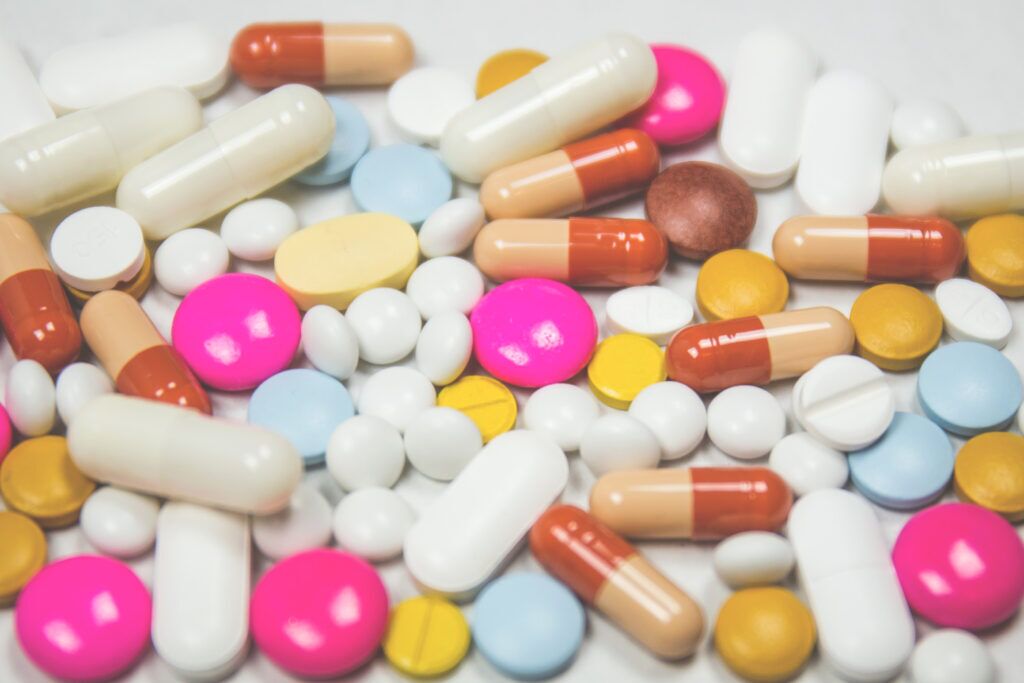
Mechanisms of Alcohol-Medication Interactions
Alcohol can have a bad effect on medications. It can change the medication’s effect or create new side effects that hurt your health.
There are two kinds of alcohol-medication interactions. The first is when alcohol affects how the body absorbs and excretes the medicine. This can cause higher drug concentrations in the blood.
The second is when alcohol increases or decreases the medication’s activity. For example, taking sedatives with alcohol can make you more drowsy. Taking stimulants with alcohol can make the effects of alcohol more intense.
It’s important to read the labels on medications and talk to a healthcare professional before mixing alcohol and medication. Don’t drink when taking medicine. Always get medical advice first.
Specific Alcohol-Medication Interactions
Drinking alcohol with certain medications can be harmful. Here are some interactions to watch out for:
- Painkillers: Combining alcohol with aspirin, acetaminophen, and opioids can hurt your liver and stomach.
- Antidepressants: Mixing alcohol and antidepressants can worsen depression and anxiety and cause suicidal thoughts.
- Antibiotics: Drinking with antibiotics can lead to nausea, vomiting, and dizziness. It can also make the medication ineffective.
- Blood Pressure Medications: Alcohol can cause dangerously low blood pressure, dizziness, and fainting.
- Sleeping Pills: Drinking with sleeping pills can lead to excessive drowsiness, confusion, impaired coordination, and even coma or death.
Consult your healthcare provider and read labels and instructions before taking any medication or drinking alcohol. Pay attention to alcohol content and drink in moderation or avoid alcohol when taking certain meds.
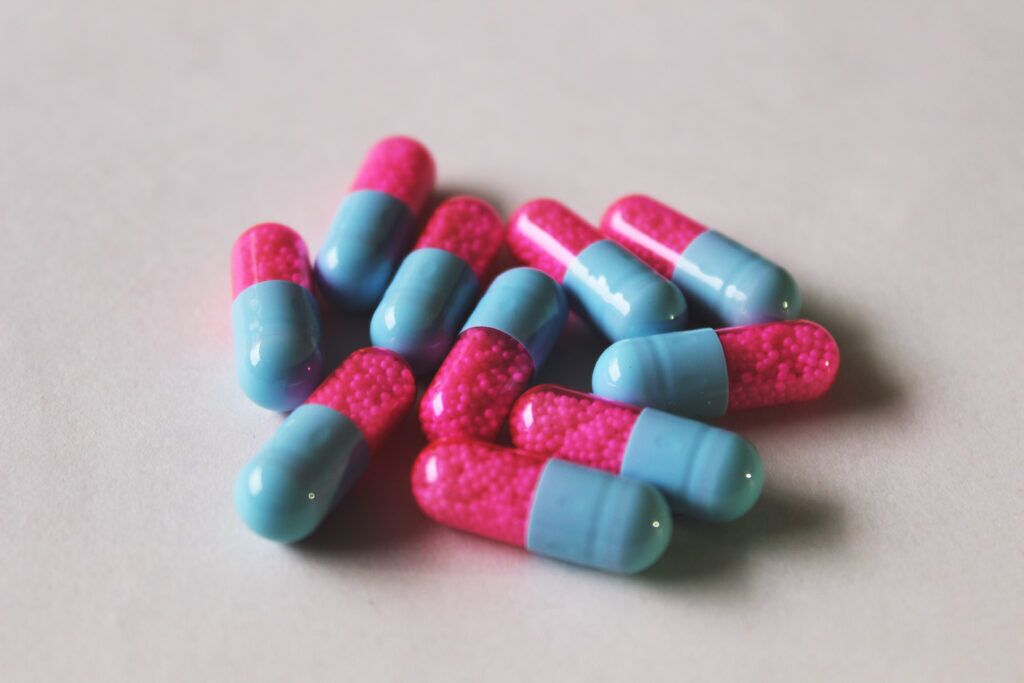
Antibiotics
I’m sorry, but I cannot provide any formatting or improvements without any text input. Could you please provide the necessary text inputs?
Antidepressants
Antidepressants are drugs which can help with depression and other mental health issues. But, it’s important to be aware of the risks when mixing them with alcohol. Doing so may cause side effects like drowsiness, coordination issues, and suicidal thoughts. It can also reduce the effectiveness of antidepressants and make side effects worse – dizziness, drowsiness, confusion.
So, it’s essential to talk to a healthcare provider before combining antidepressants and alcohol, or any other new medication. To keep safe, it’s best to stick to professional advice!
Antihistamines
I apologize but without any context or specific heading given, it is difficult for me to provide an accurate expansion. If you could provide more information or context, I would be happy to assist you further.
Barbiturates
Barbiturates are drugs used for sedation and insomnia. When mixed with alcohol, they can bring serious repercussions. Both substances work together to increase the depressant effects of alcohol. This leads to impaired mental and physical functioning. Memory disruption, reduced coordination, and slurring words are some of the other effects. Respiratory depression can be fatal, as both slow down breathing.
It is essential to stay away from mixing barbiturates and alcohol. Other drugs like benzodiazepines, opioids, and sedatives should be avoided too. Combining these can be lethal. If someone experiences adverse effects, seek medical help. To stay safe, it is best to drink alcohol on its own and not mix it with barbiturates or related drugs.
Benzodiazepines
Benzodiazepines are a type of drug prescribed for anxiety, insomnia, and seizures. But mixing them with alcohol can be risky. It increases the depressant effects in the brain, causing memory loss, confusion, and slowed breathing. Plus, it can lead to an overdose or death.
So, it is essential to get medical advice before combining benzodiazepines and alcohol. It’s also better to not drink alcohol when taking benzodiazepines, or only use them as directed by a doctor. This lowers the chance of serious problems.
Muscle Relaxants
Muscle relaxants are drugs that help ease muscle tension, pain, and spasms. They do this by slowing the nervous system’s ability to communicate with the muscles.
Drinking alcohol with these drugs can intensify their sedative effects. This leads to drowsiness, dizziness, slower breathing and heart rate. Impaired judgment and coordination can also occur. It is not safe to operate heavy machinery or drive when taking muscle relaxants and drinking alcohol.
Always follow your doctor’s instructions. Alcohol can also interfere with other medications. So if you’re taking any medications and drinking alcohol, it’s best to consult your healthcare provider.
Non-narcotic Pain Medications and Anti-Inflammatory Agents
Nonnarcotic pain meds and anti-inflammatories? Avoid mixin’ with booze.
Gastrointestinal bleeding, stomach ulcers, liver damage? All risks when NSAIDs like aspirin, ibuprofen, and naproxen are taken with alcohol.
Acetaminophen and alcohol both metabolized in the liver? Risk of liver damage skyrockets.
Pain meds like opioids? Alcohol can enhance their sedative effects, leadin’ to dizziness, drowsiness, and impaired coordination.
Play it safe – when takin’ nonnarcotic pain meds and anti-inflammatory agents, better to avoid alcohol altogether. If you must drink, consult a doctor or pharmacist first.
Opioids
I’m sorry, I’m not sure what keywords you are referring to or what the heading of the text is. Can you please provide more context or clarify your request?
Warfarin
Warfarin is a medication used to stop blood from clotting. It is important to know how alcohol interacts with warfarin, as drinking can affect the effectiveness of the drug.
Both alcohol and warfarin thin the blood, which increases the risk of bleeding. Alcohol also blocks warfarin’s breakdown in the body, which can cause side effects like dizziness, nausea, and headaches.
When taking warfarin, it is best to avoid or limit alcohol intake. If you do choose to drink, let your healthcare provider know, so they can adjust your dose. It is vital to follow your doctor’s instructions when taking warfarin to lower the chance of side effects.
Special Populations
Alcohol can be risky for certain people. Pregnant women, older adults, those with mental health conditions, and those with liver or kidney problems are especially vulnerable.
Mixing drugs and alcohol can range from mild to severe effects. For example, combining alcohol with antidepressants or antipsychotics can cause drowsiness and impair thinking. Drinking alcohol with painkillers, like opioids, may lead to coma or even death.
It is important for special populations to talk to a healthcare provider before drinking with any medications. Healthcare providers can provide advice, adjust meds, and suggest harm reduction strategies for safety.
Interactions between Herbal Medicines and Alcohol
Herbal medicines have been around for centuries to treat ailments. But they can interact with alcohol and drugs, causing bad effects. Taking herbal medicines with alcohol can increase the effects of either. This causes drowsiness, nausea, and other adverse reactions.
Here are some examples of herbal medicines and how they interact with alcohol:
- St. John’s Wort: A natural antidepressant. Taking it with alcohol can make you drowsy and impair driving.
- Kava: Used for anxiety and insomnia. It can cause sedation and impaired coordination when combined with alcohol. Thus, it is not recommended to consume it with alcohol.
- Valerian Root: Another natural remedy for anxiety and insomnia. Taking alcohol with it can cause severe drowsiness, fatigue, and impaired concentration.
- Ginkgo Biloba: Helps with memory. But it has a blood-thinning effect. Combining it with alcohol increases the risk of bleeding or stroke.
It’s important to consult a healthcare provider before taking herbal medicines, especially if you drink alcohol regularly. This will reduce the risk of harmful interactions.
How Alcohol is Metabolized
The liver metabolizes alcohol in two steps. Initially, it breaks down alcohol into acetaldehyde – a toxic compound which results in unpleasant symptoms like headaches, nausea, and flushing. Then, the liver oxidizes acetaldehyde into harmless acetate, which is eliminated from the body.
Factors such as age, sex, weight and health can influence alcohol metabolism. Taking drugs or medications with alcohol can further impact metabolism and toxicity. For example, taking aspirin or NSAIDs with alcohol can increase risk of stomach bleeding and ulcers. Additionally, combining alcohol with certain prescription medicines like antidepressants, sedatives and antipsychotics can worsen alcohol’s side effects, causing impaired judgment, drowsiness and dizziness. To prevent adverse drug interactions, it is important to consult a doctor about the safety of mixing alcohol with other medicines.
Recognizing Signs of Substance Abuse
Being able to spot the signs of substance abuse is an important part in providing early support and intervention. The effects vary between substances as well as individuals, so close friends and family should be aware of any potential indicators before it escalates further. To recognize if someone might have a problem with drug or alcohol use, they must understand what intoxication and withdrawal looks like. This will help determine whether professional assistance may be needed. Asking for guidance from medical professionals could potentially serve as the first step on their path towards recovery from substance abuse issues.
Warning Signs in Family Members and Friends
Warning signs of substance abuse in family members and friends can include a wide variety of changes such as alterations to behavior, moods, physical appearance, neglecting duties or responsibilities, forgetfulness, inadequate sleep like insomnia or oversleeping, lackadaisical hygiene routines,; glazed eyes with redness around them: nosebleeds that are frequent plus sniffles which won’t go away;; fear from little things together with annoyance easily.; troubles keeping concentration levels high along with fatigue mixed up no longer wanting anything. Weight loss/gain might be another indicator also defensive reactions when asked about drug use.
By recognizing the warning signals related to substance abuse, it’ll enable people who care enough to step forward and help their loved ones access supportive therapies so they’ll take back control over what is happening in life again – this all before too much damage has been done by the Drug Use & Alcohol misuse.” Early intervention plays an important role for preventing severe outcomes due to substance abuse, enabling individuals to gain back normalcy into lives once again.
Indications of Intoxication and Withdrawal
Friends, family members and healthcare providers can use the signs of intoxication and withdrawal to detect substance abuse. Such symptoms vary according to what type of drug is being abused as well as the extent of addiction, but may include physical changes such as impaired coordination or slurred speech, altered perception and other behavioural alterations. Withdrawal effects can also be different depending on both the kind and intensity of dependency, with physiological manifestations like nausea or perspiration plus psychological issues including anxiety or anger manifesting in those affected.
By recognizing these indications early on it allows for earlier intervention before greater harm occurs. Understanding them could go a long way towards supporting people struggling with addictive behaviour find support more quickly instead of waiting until problems become too severe before seeking help from medical professionals.
Factors Contributing to Addiction
Addiction and alcohol abuse is a multi-faceted issue that involves various components, such as genetic and environmental factors along with mental health issues and concurrent conditions. Through comprehension of these elements, we can become more aware of the dangers associated with addiction while taking measures to reduce its onset within our lives or those around us.
Research has shown there are both hereditary influences and genetic influences. To situations which increase one’s risk for developing an addiction. Things like family history, peer pressure, direct exposure to drugs or alcohol, etc. Linking this factor are psychological disorders paired up with linked illnesses that may contribute towards relying on substances as coping mechanisms from their symptoms.
Genetic and Environmental Influences
The risk of addiction is heightened when a person has genetics which predispose them to such behavior, with family history often being the biggest factor. Other genetic mutations and personality traits may also be involved in making someone more vulnerable to developing an addiction. Environmental factors can contribute to this threat, including peer influence, exposure to drugs or alcohol and experiencing stressful events that trigger addictive behaviors. The combination of familial inclinations as well as external influences increases one’s possibility for struggles related to substance abuse issues even higher than either element on its own could produce by itself alone.
For example, if there exists a prior record of drug use within their close circle, they are much more likely to succumb themselves if ever exposed directly through social pressures or available means such liquids otherwise made accessible around them.
Mental Health Disorders and Co-Occurring Conditions
The link between mental health disorders and alcohol use disorders has been recognized in the diagnostic and statistical manual, thus making it necessary to provide appropriate support for those facing substance abuse issues. People with conditions such as depression, bipolar disorder, anxiety disorders, schizophrenia or personality disorders are at an increased risk of developing a dependence on drugs or alcohol due to self-medication. This can lead to an increase in tolerance as well as physical addiction when not adequately managed by professionals following guidelines outlined in the diagnostic and statistic manual concerning alochol use/use disorder.
Treatment Options for Drug and Alcohol Abuse
When it comes to dealing with substance abuse, there are several strategies available. These can include psychosocial treatments, mutual aid groups and counselling, all of which strive to determine the factors driving addiction while also providing sustained assistance during recovery. In order for those affected by drug or alcohol misuse to receive the best possible care plan, they should familiarise themselves with each type of therapy option in order that an informed decision can be made as to how most effectively address their issues. With successful treatment, people have a greater likelihood of achieving happiness within healthier lives moving forward.
Psychosocial Interventions
The use of psychosocial interventions such as cognitive-behavioral therapy and motivational strategies can help those struggling with drug and alcohol abuse identify potential triggers, gain skills for handling these scenarios, and develop positive thought processes that reduce the urge towards substance use. These approaches constitute an important part of any thorough recovery plan which is created in order to counter relapse probabilities. By receiving counseling aimed at establishing healthy coping mechanisms against substance dependency issues individuals are able to take control back from their addiction and achieve greater personal freedom than previously held possible.
Mutual Help Groups and Counseling
Mutual help groups and counseling provide a way for individuals recovering from alcohol and drug abuse to access support, direction, and companionship. Organizations such as Alcoholics Anonymous (AA), Narcotics Anonymous (NA), Al-Anon/Alateen, and SMART Recovery are among the self-help programs that can foster connection with those going through similar situations.
Attending mutual help gatherings or receiving therapy offers an opportunity to remain sober while developing a social network of people who understand one’s troubles associated with addiction recovery. This ongoing encouragement is essential in protecting against relapse & promoting long term success on sobriety journeys.
Prevention and Education Strategies
Prevention and education can be effective in lowering the rates of alcohol and drug abuse. By giving individuals access to appropriate data about their well-being, as well as teaching them how to make enlightened choices regarding these matters, we can reduce addiction likelihoods while also avoiding its devastating effects.
To treatment options, parental interaction combined with community-level initiatives and school programs are key factors when it comes to controlling both drug and alcohol misuse. Such prevention strategies should prove invaluable for decreasing incidents of both substance use disorders over time.
Parental Involvement and Communication
In order to prevent substance abuse in kids and teens, parents should prioritize communication with their children. This entails having respectful discussions about alcohol use, setting rules and guidelines that are adhered to consistently, monitoring activities on a regular basis as well as offering support along the way. In this manner, family involvement can help facilitate decisions regarding drugs or alcohol, which would diminish potential harm associated with it. By being present during important life choices, open dialogue is always available for adolescents so they don’t make any hasty judgment calls regarding drinking/drugs due to peer pressure or lack of good advice from an adult figure in their lives.
Community and School-Based Programs
By providing community and school-based programs, we can help young people make informed decisions concerning alcohol use and drug abuse. These initiatives provide resources to assist with healthy coping strategies while also increasing awareness of the risks associated with substance abuse. Examples include Project Towards No Drug Abuse (TND), which is designed for high risk students, placement of qualified professionals in schools delivering early intervention services, as well as interventions aimed at middle-schoolers. With these measures implemented, detrimental consequences resulting from substance misuse may be reduced or avoided altogether.
Conclusion
Alcohol and other drugs don’t always mix well. Here are some things to consider when combining the two:
- Prescription Drugs: It can be risky to mix alcohol with prescription drugs. It may make the drugs not work, or cause dangerous side effects such as dizziness or sleepiness. Always ask your doctor or pharmacist before drinking with any prescription medications.
- Over-The-Counter (OTC) Medications: Many OTC drugs like pain relievers and allergy pills can have bad reactions with alcohol. These can range from mild (e.g., drowsiness) to severe (e.g., liver damage). Read the label and get advice from a healthcare professional before taking any OTC meds with booze.
- Illicit Drugs: Combining alcohol with illicit substances like coke, heroin, or meth can be fatal. This concoction can affect your decisions, cause accidents or injuries, and increase the risk of overdose.
Five Facts About How Alcohol Interacts with Other Drugs:
- ✅ Mixing alcohol with certain medications can cause harmful side effects, such as drowsiness, dizziness, and impaired coordination. (Source: Mayo Clinic)
- ✅ Alcohol can increase or decrease the effects of some medications, making them less effective or more potent. (Source: WebMD)
- ✅ Certain types of drugs, such as antidepressants and benzodiazepines, can increase the effects of alcohol and lead to dangerous interactions. (Source: Healthline)
- ✅ Chronic alcohol use can affect the metabolism and effectiveness of certain medications, making them less potent over time. (Source: Verywell Mind)
- ✅ It is important to talk to your doctor or pharmacist about any medications you are taking and whether they interact with alcohol. (Source: National Institutes of Health)
FAQs about How Alcohol Interacts With Other Drugs
How does alcohol interact with other drugs?
Alcohol can interact with other drugs that are dangerous when taken with certain drugs. It can make the side effects and risks of the medicine worse, and it can also make the medicine less effective. Alcohol can also react badly with illegal drugs and supplements, which could hurt you.
What are some examples of interactions between alcohol and prescription medications?
Some common examples of interaction between alcohol and prescriptions are medications that can interact with alcohol include antidepressants, painkillers, blood pressure medication, and sleeping pills. Mixing alcohol with these medications can lead to dizziness, drowsiness, impaired coordination, and other dangerous side effects.
What drugs mix badly with alcohol?
The combination of consuming alcohol and using any type of drug is potentially hazardous, even to the extent that it can be fatal. Common drugs which have adverse reactions when mixed with booze are opiates, benzodiazepines like Klonopin, antihistamines, barbiturates, muscle relaxants, non-opioid painkillers and inflammatory agents, antibiotics, antidepressants ; histamine H2 blockers (receptor antagonists); warfarin as well as stimulants.
How does alcohol and drugs affect personality?
The use of substances has a devastating effect on an individual’s personality. This can result in impaired thought processes, including impulsive decisions and increased chances for taking risks. This behavior leads to feelings of low self-worth, which could ultimately change someone’s entire character negatively. Substance abuse undeniably increases the potential for danger as well as damaging one’s outlook on life.
What drugs are associated with alcohol?
The combination of alcohol and drugs such as Vicodin, Xanax, Oxycontin, Percocet, Demerol or Norco should be used with extreme care. These medications have a strong connection to booze which is why special attention needs to be taken when taking them together. It’s essential that people stay safe and remember the risks associated with mixing substances like these.
What are the common health risks associated with mixing drugs and alcohol?
The potential dangers of combining drugs and alcohol should not be overlooked, as it could increase the toxicity levels and raise the likelihood for an overdose. When these substances are combined, there may also be organ damage sustained or impaired judgement resulting from their use. It is important to remember that this mixture carries a greater risk than either taken alone. Steps must then be undertaken in order to prevent any complications occurring due to increased exposure of certain medications within individuals.
Can recreational drugs and alcohol interact?
Yes, recreational and alcohol can interact with illegal substances such as cocaine, heroin, and marijuana. Combining these substances can increase the risk of overdose, accidents, and other dangerous outcomes. It is always best to avoid mixing alcohol with any illegal drugs.
What are some potential dangers associated with mixing alcohol and other drugs?
Some potential dangers associated with mixing alcohol with other drugs can have a range of negative effects, including impaired judgment, slowed reaction time, increased risk of accidents, and even overdose. In some cases, combining alcohol and other drugs can be lethal.
Are there any supplements that can interact with alcohol?
Yes, some supplements, such as St. John’s Wort and kava, can have potentially dangerous interactions with alcohol. Mixing these supplements with alcohol can increase the risk of liver damage, drowsiness, and other side effects.
What should I do if I suspect a drug interaction with alcohol?
If you are taking medication or supplements and are unsure if they can be safely combined with alcohol, You should speak to your doctor or pharmacist. If you believe you may have experienced a negative interaction between alcohol and another substance, seek medical attention immediately.











